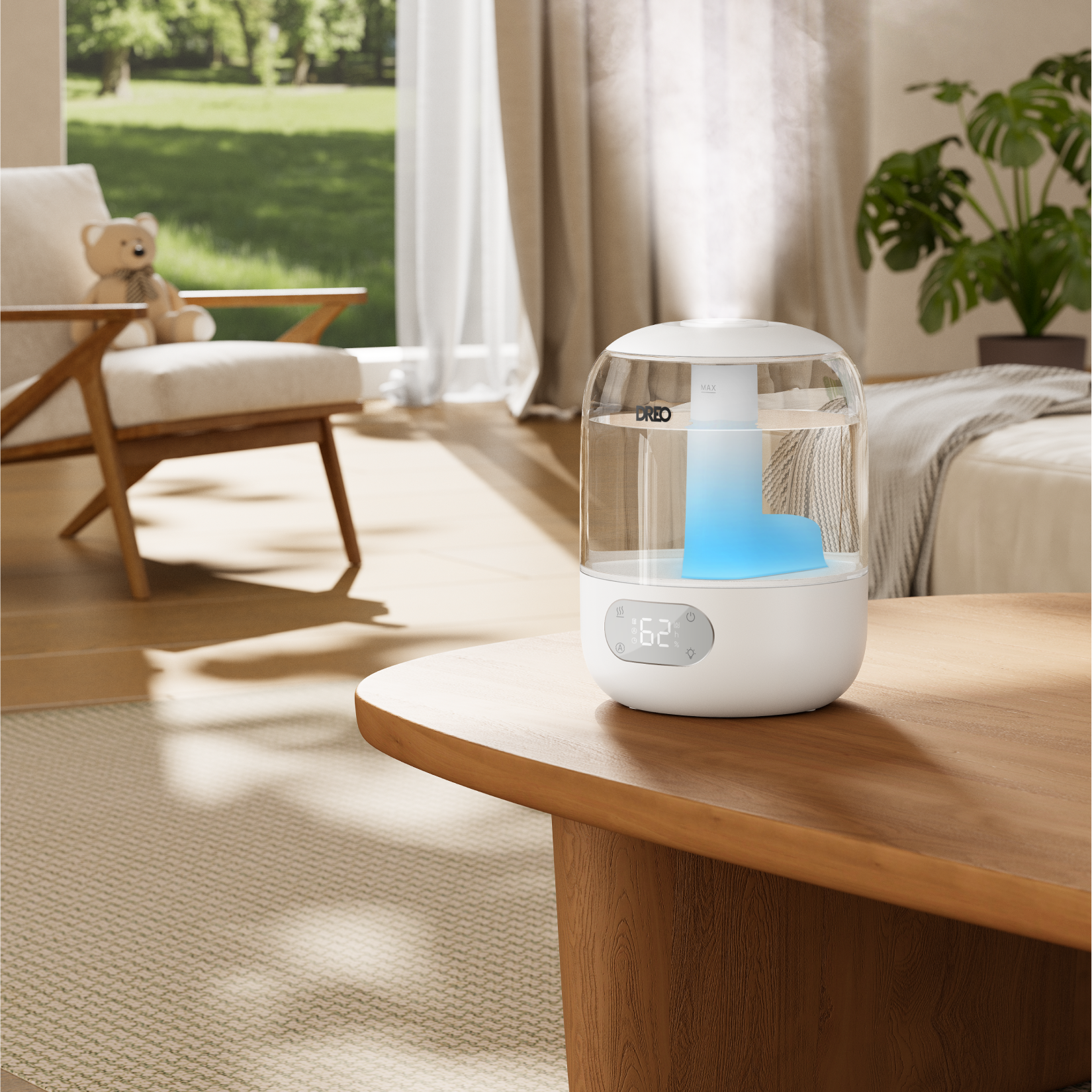Harsh winters or extremely dry, arid climates can create a host of hardships, ranging from respiratory issues, skin irritations, and dry eyes to damaging wooden furniture and musical instruments. To deal with dry indoor environments, people use humidifiers, an effective tool for improving the longevity of possessions and quality of life.

While many know the benefits of using humidifiers, they don’t always use these handy devices correctly. One prominent example of humidifier misuse involves the type of water used to allow the DREO humidifier to improve air quality. While it might seem like a minor consideration, the water type can impact the humidifier’s performance very significantly. So, what type of water should you use in a humidifier? Let’s take a closer look at why water type is vital for an efficient humidifier, what is the best type to use, and why doing so matters.
Why Does The Water Type In A Humidifier Matter?
The humidifier’s job is not complex. It simply turns the water it is filled with into mist, then disperses it into the surrounding air. However, the type of water it uses can negatively impact the humidifier through mineral buildup. When water contains minerals such as magnesium and calcium, as the water evaporates, those minerals largely do not, meaning that they stay behind as scale, a chalky, white residue that clogs the humidifier, reducing its efficiency and lifespan.

Even ultrasonic humidifiers don’t fare well with minerals that are released as white dust particles into the air. This is harmful to those with respiratory conditions and uncomfortable for most who suffer from various eye and skin irritations. Also, since humidifiers take time to evaporate the standing water contents, bacteria and mold have time to grow in them, especially if the water type used contains impurities. When these microbes grow and then are dispersed in the air with the mist, they pose a very real health risk.

Should Tap Water Be Used In A Humidifier?
For most households, tap water is the most accessible, so most people assume that it is a fine choice for a humidifier. However, while it is certainly usable, the tap water utility in these devices poses the highest risk levels. Many areas have “hard” tap water, which is another term for it containing high mineral levels that can quickly scale the humidifier. This means that buildup will be more notably present, and the humidifier will require more frequent cleanings to prevent excessive buildup and disrepair.
Since many people drink tap water, a large number of municipal water suppliers need to treat it with several additives, including chlorine to ensure it is safe to consume. When vaporized upon heating, however, these additives emit unpleasant odors, affecting the quality of the air. With all this in mind, tap water will still work in humidifiers, but only when other types are unavailable and only for the short term.
Should Distilled Water Be Used In A Humidifier?
Distilled water is generally considered the best option to be used in humidifiers. During the distillation process, water is boiled into steam which separates the water molecules from any impurities. It is then condensed back into clean liquid form, free from magnesium and calcium deposits, as well as microbes.
It could be argued that the price point of using distilled water is higher since it is more expensive than using tap water, making it a less cost-effective option. However, cleaner water results in a humidifier that lasts longer, produces a better quality mist, and requires fewer repairs, which in the long term, actually saves money.

Should Purified Or Filtered Water Be Used In A Humidifier?
While distilled water is the best option for a humidifier, it isn’t always an available or realistic one. However, filtered or purified water can serve as an acceptable substitution. It isn’t quite as clean as its distilled counterpart, but it is still a better option than tap.
Purified water has undergone deionization and reverse osmosis to reduce the mineral content and remove microbial activity. Filters capture many minerals as water is poured through them as well, leaving filtered water with a lower content of impurities than tap water.

Maintenance Of Humidifiers For Best Performance
Regardless of the water type used in a humidifier, it is important to keep the humidifier maintained for it to run smoothly, emitting cleaner, healthier mist for longer periods. Here are a few tips to help your humidifier perform at its best:
If using tap water, look for the presence of white residue on nearby furniture, and switch to distilled water if any is present.
Empty the humidifier tank after each use as this helps to wash away any mold or microbes that have begun growing in the water.
Replace filters in filtered humidifiers as per the manufacturer’s instructions.
Scrub the tank weekly with a mixture of water and white vinegar to remove any mineral deposits, then thoroughly rinse the tank before use.
When the humidifier is not in use, dry it thoroughly to avoid bacteria and mold growth before storing it.
Conclusion
While it may seem like a nominal detail, the type of water used in a humidifier is quite important for air quality and the humidifier’s function. While tap water is the easiest and most accessible option for most users, its mineral content leads to scaling, more frequent cleanings, and white dust on furniture. Filtered and purified water options are fine choices, but distilled water is the ideal option to prevent buildup, reduce the presence of microorganisms, and purify the environment around the humidifier.



